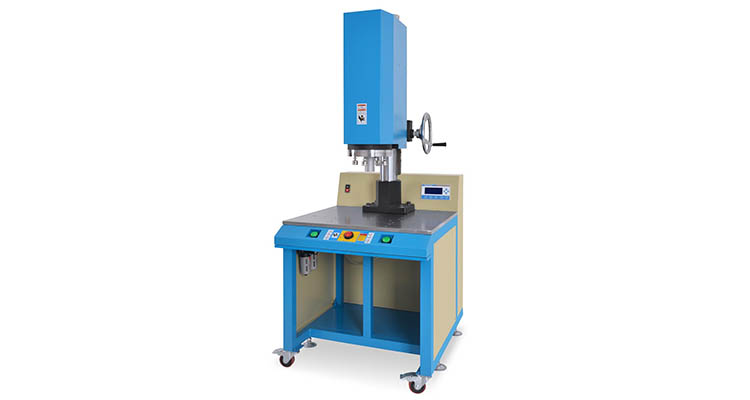
For operators working with high-frequency machinery, it's important to familiarize themselves
with common issues that may arise and have a basic understanding of how to troubleshoot
them. High-frequency welding machines are primarily composed of the sonotrode assembly
and control box, with the control box being more prone to faults. Within the control box, key
components include high-voltage components and the control interface. While the control
system's maintenance needs are relatively low, the high-voltage section, which constitutes the
core electrical part of the equipment, is where critical failures might occur. Learning and training
in simple troubleshooting methods can greatly facilitate your maintenance tasks.
A. Rectifier Tube Failure:
Rectifier tubes may experience gate and anode oxidation faultsGate Fault: No output current or
current reaches 0.2A triggering overcurrent protection.Check gate resistor and gate capacitor in
this case.
B. Anode Oxidation Fault:
Rectifier tube doesn't light up or current is difficult to achieve. Accurately measure if tungsten
filament voltage is normal and check for resistance on both sides of the anode oxidation. Use a
multimeter to check continuity between anode oxidation and gate or between anode oxidation
and the midpoint of the negative terminal.
C.Ballast Failure:
Key condition for ballast failure is difficulty in achieving high current, causing circuit breaker trips.
Measure if the ballast is open on the side. If the diode is damaged, replace it with a new one.
D.Oscillating Barrel (Waveguide) Failure:
Faults in the oscillating barrel are often due to excessive dust or the presence of metal materials
and other objects.Use air blowing to clean and tidy the oscillating barrel. The probability of burning
out the oscillating barrel is very low.
E.High-Frequency Welding Machine Transformer Failure:
Transformer failure leading to difficulty achieving high current and causing power supply trips.
Repair rate for transformers is low.When the transformer is burned out, it needs to be removed
and replaced.
F. Capacitor Failure:
Capacitor failures are common. Key signs are capacitors igniting or current meter needle quickly
returning to zero.Faulty capacitors with signs of burning or damage should be replaced.
A. AC Contactor Failure:
AC contactor failure means the AC contactor isn't working.If the electromagnetic coil's working voltage is
normal and the AC contactor doesn't engage, it indicates a burnt-out AC contactor.Replace the faulty AC
contactor with a new one.
B.Spark Faults:
Frequent sparks during high-frequency welding machine operation.During high-frequency startup, if the
display shows "spark maintenance,"check the spark PCB circuit board, spark capacitors, spark transformer,
and spark tube for any damage.
C.Overcurrent Protection Fault:
Overcurrent protection triggers during startup or difficulty in increasing current.Check if the overcurrent
resistor and overcurrent automotive relay are burnt out.Replace damaged components with new ones.
D.Timer Control Failure:
Timer control is crucial in high-frequency equipment for controlling delay time, welding time, shaping time,
and gain value.To identify timing issues, observe which time indicator light doesn't change when setting
various time values.
E.Limit Switch Failure:
Each limit switch has its own command.If a command doesn't work, diagnose the limit switch using a digital
multimeter and replace it when confirmed faulty.
F.Fan Failure:
Cooling fans are crucial for maintaining rectifier tube lifespan. If the fan doesn't operate, check if it's
properly connected to the power source or if the fan blades are obstructed.
Phone: +86-15989541416
E-mail: michael@sztimeast.com
Whatsapp:+86-15989541416
Add: 3/F, Building 5,Huixin Intelligent Industrial Park, Xinhu, Guangmin, Shenzhen,China 518107